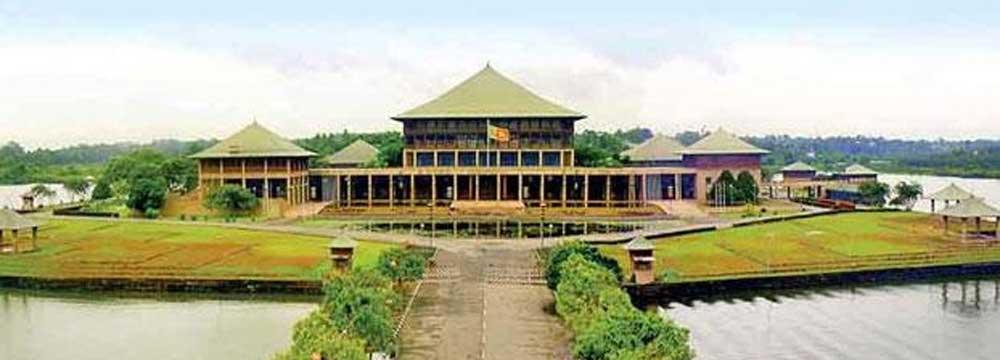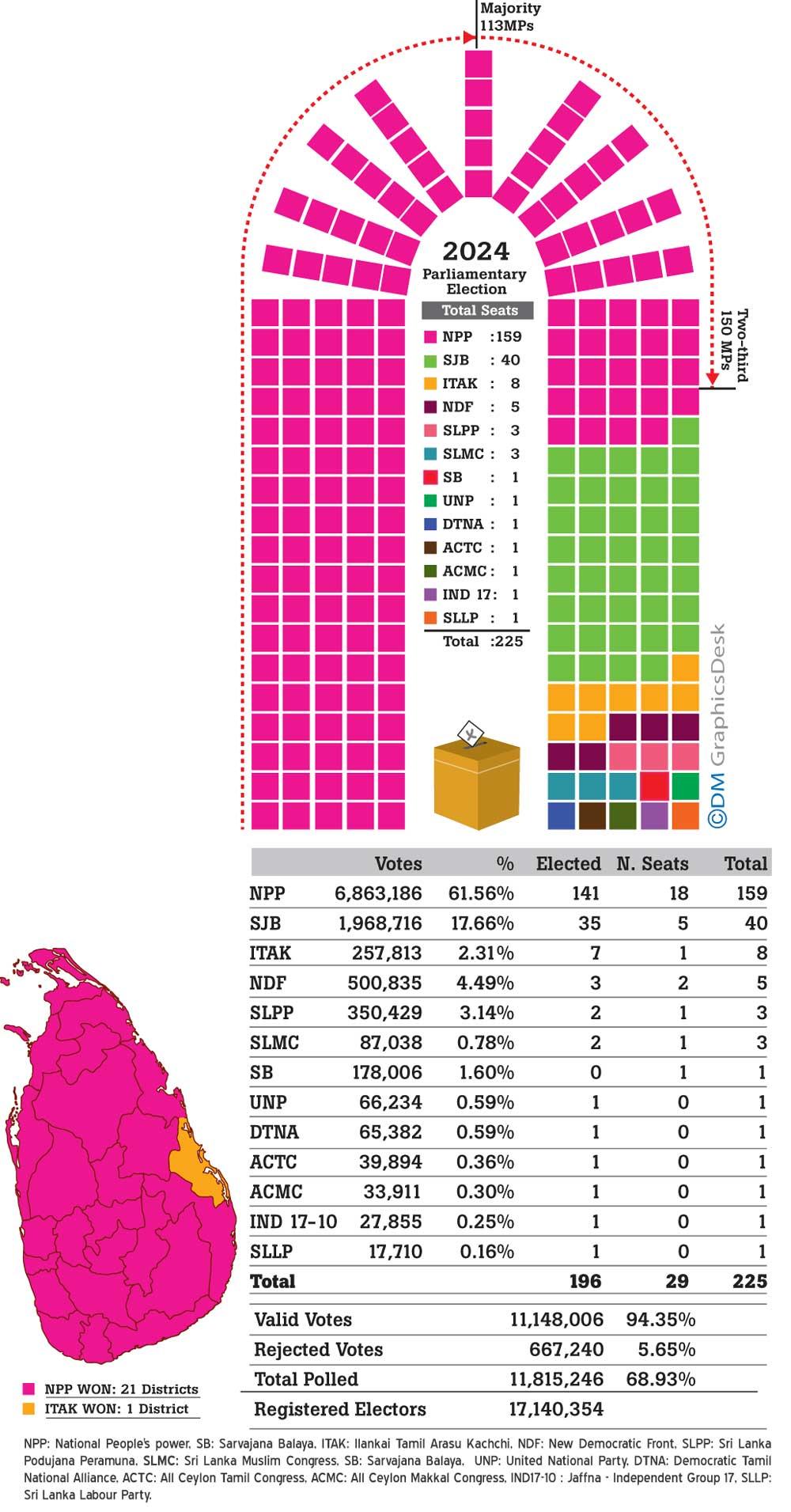16 Nov 2024 - {{hitsCtrl.values.hits}}

By Kelum Bandara
In what appeared to be an election outcome with numerous firsts, the ruling National People’s Power (NPP) swept the polls securing more than two-thirds majority, an achievement considered impossible under the current electoral system of proportional representation so far.
No single party that won General Elections successively since 1989 when the current electoral system was experimented first has been able to obtain two-thirds majority in the 225- member Parliament of the country. The NPP received 159 seats as a single party, with 141 elected through direct votes and 18 on the National List.
At the elections conducted in 2020 and 2020, the political forces led by Mr. Mahinda Rajapaksa came close to two–thirds. In 2010, his United People’s Freedom Alliance (UPFA) received 144 seats, six seats short of 150 required for two-thirds of the House. Also, Sri Lanka Podujana Peramuna (SLPP) led by Mr. Mahinda Rajapaksa got 145 seats. However, on both occasions, these parties roped in members from their alliance partners to establish a two-thirds majority in the House.
A party requires 113 members in the House to form a majority government. A simple majority is sufficient for normal legislative work of the House, including the approval of annual budgets. However, a two-thirds majority is needed for a government to enact constitutional changes or pass legislation which are inconsistent with the provisions of the Constitution. The NPP, in its manifesto, has pledged to introduce a new constitution.
On some occasions in the past since 1989, the parties that came first at General Elections even failed to get a simple majority. In 2004, the UPFA, as the single largest party, received only 105 seats. The United National Party (UNP) that won the General Election in 2001 got 109 seats. In 2000, the People’s Alliance got 107 seats and in 1994, 105 seats. In 1989, the UNP which won the election bagged 125 seats.
In another first, the NPP, as a party based in the south, has been able to win Tamil – majority constituencies in the north and the east. The party won the Jaffna District, a constituency that always clinched up a party identified with Tamil ethnicity at General Elections ever since independence.
At this election, no member from the Rajapaksa family was elected. In the first instance, the Rajapaksa brothers – Mahinda Rajapaksa, Basil Rajapaksa, Chamal Rajapaksa and Gotabaya Rajapaksa- who dominated Sri Lankan politics for the last two decades were not in the fray. However, two nephews of Mr. Mahinda Rajapaksa- Shasheendra Rajapaksa and Nipuna Ranawaka- contested the polls but failed to secure seats as their party SLPP performed badly.
The SLPP which secured nearly two thirds at the 2020 General Election ended up with only two members elected from Hambantota and Galle. The party got one more seat on the National List. Mostly, party’s national organiser Namal Rajapaksa, who is the son of Mr. Mahinda Rajapaksa, is tipped to be nominated as an MP.
Eelam People’s Democratic Party (EPDP) which has represented Sri Lanka Parliament ever since 1994 ended up with no seat this time.
Also, the ITAK which remained the dominant political force in the north and the east was reduced to mere eight seats this time.
 |
 |

18 Dec 2024 45 minute ago
18 Dec 2024 58 minute ago
18 Dec 2024 1 hours ago
18 Dec 2024 1 hours ago
18 Dec 2024 3 hours ago